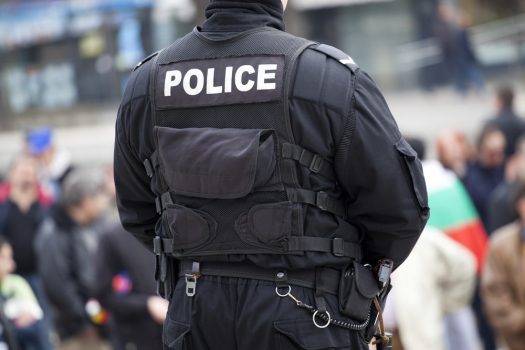The Supreme Court of New Jersey recently held that the public has the right to access recordings from the mobile video recorders (MVRs) in police vehicles under the common law right of access. The court further held in North Jersey Media Group, Inc. v. Township of Lyndhurst that unredacted Use of Force Reports must be disclosed pursuant to the Open Public Records Act (OPRA).
Facts of the Case
On September 16, 2014, a North Arlington resident called 9-1-1 to report an attempted car break in. The police tried to stop the suspect’s car; however, he refused to stop. During the subsequent high-speed police chase, Kashad Ashford attempted to ram a patrol car head-on. The pursuit ultimately ended when Ashford lost control of his vehicle and crashed it into a guardrail. According to the Attorney General’s press release, Ashford tried to escape by accelerating, which caused the car to “jerk[] in a rear and forward motion.” An unidentified officer said that he thought the SUV might strike and possibly kill him and another officer. Several officers fired shots at Ashford, and he later died.
Within days of the fatal police-involved shooting, reporters from The Record and South Bergenite filed requests for records under OPRA and the common law right of access. After the records’ custodians failed to provide the requested documents, plaintiff North Jersey Media Group, Inc. (NJMG) filed suit, alleging violations of OPRA and the common law right of access.
The trial court held that the defendants improperly withheld the requested records, concluding that neither OPRA’s criminal investigatory records exception nor its ongoing investigation exception applied. The Appellate Division reversed. It concluded that, aside from the 9-1-1 recording, motor vehicle accident reports, and portions of Computer Aided Dispatch reports and other logs that do not relate to the criminal investigations, the requested documents fell within the criminal investigatory records exception.
The Appellate Division remanded to the trial court to reconsider NJMG’s request under OPRA’s ongoing investigation exception and the common law. On remand, the trial court ruled that defendants were not required to release the names of the officers or disclose two remaining Use of Force Reports (UFRs), three dash-cam videos, and three police reports. The court cited the need to maintain the integrity of the ongoing investigation.
Court’s Decision
The Supreme Court of New Jersey unanimously held that OPRA mandated the disclosure of unredacted Use of Force Reports, while the dash-cam recordings of the incident must be made available under the common law. However, the court concluded that investigative reports, witness statements, and similarly detailed records were not subject to disclosure at the outset of the investigation, which was when they were requested.
The court first addressed the requests for the Use of Force Reports. It noted that to qualify for OPRA’s criminal investigatory records exception a record (1) must not be “required by law to be made,” and (2) must “pertain[] to a criminal investigation.” Applying this test, the court then concluded that because Use of Force Reports are “required by law to be made,” they do not qualify for OPRA’s criminal investigatory records exemption. In reaching its decision, the New Jersey Supreme Court agreed with the lower court that the Attorney General’s Use of Force Policy, which requires Use of Force Reports to be filed after a deadly police shooting, has “the force of law for police entities.”
The Court further held that the ongoing investigation exception did not apply to the Use of Force Reports. “The release of UFRs presents far less of a risk of taint to an ongoing investigation because UFRs contain relatively limited information,” Chief Justice Stuart Rabner wrote on behalf of the court. “Also, defendants in this case raised only general safety concerns.”
The court next determined that the police dash cam videos fall within OPRA’s criminal investigatory records exception. In reaching this conclusion, the panel highlighted that the Attorney General has not issued a directive relating to the use of dash-cams. It also rejected NJMG’s argument that general retention schedules to implement the Destruction of Public Records Law satisfy the “required by law” standard.
Nonetheless, the New Jersey Supreme Court ultimately concluded that the public’s substantial interest in disclosure of dash cam recordings warranted the release of those materials under the common law right of access. “Under the common law the public’s powerful interest in disclosure of that information, in the case of a police shooting, eclipses the need for confidentiality once the available, principal witnesses to the shooting have been interviewed,” Chief Justice Rabner explained.
“Footage of an incident captured by a police dashboard camera … can inform the public’s strong interest in a police shooting that killed a civilian,” he added. “It can do so in a typical case without placing potential witnesses and informants at risk.”
For more information about the court’s decision in North Jersey Media Group, Inc. v. Township of Lyndhurst or the legal issues involved, we encourage you to contact a member of Scarinci Hollenbeck’s Government Law Group.

